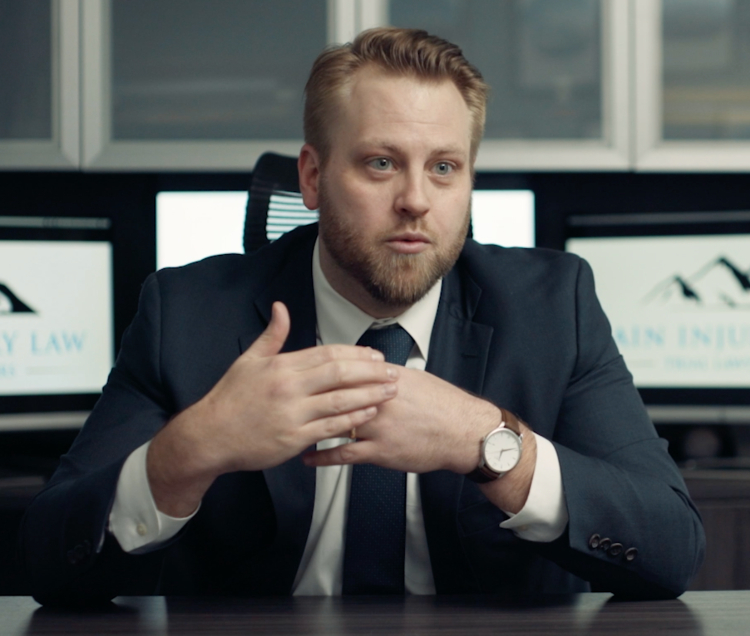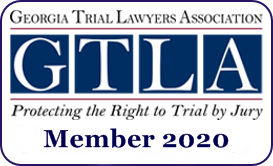
Lane-splitting is a controversial practice for motorcycle riders. It is also illegal in most of the United States. Some motorcyclists view lane-splitting as a safe and efficient way to navigate traffic congestion, but lane-splitting has potential downsides. Motorcycle riders who split lanes are at risk for being involved in serious accidents that can cause catastrophic injuries.
If you were in an accident involving lane-splitting in Georgia, the help of an experienced motorcycle accident attorney is critical. A lawyer can help you understand your legal rights and determine whether you have grounds to claim compensation for your accident-related losses.
Contact Cain Injury Law today to discuss the details of your case in a free, confidential consultation.
What Is Lane-Splitting?
Lane-splitting – also known as “white-lining” or “stripe-riding” – occurs when a motorcyclist rides between two lanes of traffic traveling in the same direction, often on broken lines.
In most cases, motorcycle riders lane-split in congested traffic to avoid slowing down or adding to the traffic jam. Some motorcyclists also split lanes to move to the front of traffic stopped at a stoplight.
Lane-Splitting Laws in Georgia
Georgia law forbids lane-splitting.
Lane-splitting is a common practice in many areas of the world. In the United States, only California has laws that explicitly allow lane-splitting. In other states, the practice is either unlawful or completely unmentioned in the text of state legal codes.
Here in Georgia, § 40-6-312 of the Georgia traffic code explicitly prohibits motorcycle riders from:
- Passing other vehicles within the same lane
- Riding between lanes of traffic
- Riding between adjacent lines or rows of vehicles
Lane-filtering is a similar practice that is also illegal in Georgia. Lane-filtering occurs when a motorcycle rider “filters” or moves between lanes of traffic to make their way to the front of a group of stopped or slow-moving vehicles, such as cars stopped at a red light. Motorcyclists often prefer to lane filter at red lights for the same reason they lane-split: It reduces the likelihood that other drivers will rear-end them.
Is Lane-Splitting Safe or Dangerous?
Although the practice of lane-splitting is controversial, it does present several benefits when done correctly. Lane-splitting allows motorcyclists to travel more quickly and reduce congestion when other vehicles are clogging up roads and slowing down traffic. Many motorcyclists also argue that lane-splitting makes their commutes safer.
Rear-end accidents often occur in stop-and-go traffic when distracted, impaired, or inexperienced drivers fail to slow or stop in time. Motorcyclists are particularly vulnerable to rear-end accidents because they are less visible and less protected than occupants of other motor vehicles. Lane-splitting reduces a motorcyclist’s risk of rear-end collisions by removing them from the dangerous area behind other stopped vehicles.
Several studies, including one the Safe Transportation Research & Education Center at the University of California Berkeley conducted, validate the theory that motorcyclists who lane-split are less likely to be involved in rear-end accidents.
However, critics say that lane-splitting can be a problem when motorcyclists streak past too quickly, startling other drivers and darting between cars as they change lanes. Researchers suggest that lane-splitting is generally not safe when traffic moves at more than 30 mph, but can be safe at speeds of 10 mph or less.
Accidents While Lane-Splitting: Who Is Liable?
Many lane-splitting accidents occur because other vehicle drivers simply don’t expect anything to pass between them and the vehicles in the lanes next to them. The unexpected nature of lane-splitting and the relatively limited room drivers have to maneuver can lead to devastating accidents in the blink of an eye.
When an accident happens while a motorcyclist is lane-splitting, it can be challenging to determine who should be held responsible for the resulting damages.
In many cases, motorcycle riders are automatically blamed for lane-splitting accidents. If a motorcyclist files a claim after a lane-splitting accident, they will very likely have a difficult time recovering compensation from an insurance company or in a civil lawsuit.
However, if you can demonstrate that the other driver was negligent and that their negligence contributed to the crash, it may be possible to obtain compensation. Georgia has a modified comparative fault system, which allows injured victims to recover compensation as long as they are less than 50 percent at fault for the incident that caused their injuries.
Can You Recover Damages After a Lane-Splitting Accident in Georgia?
While it may be difficult for motorcyclists to recover compensation after lane-splitting accidents in Georgia, you may be entitled to claim money if any of the following apply to your motorcycle accident:
- The other driver was behaving negligently, such as by abruptly changing lanes without checking or drifting in between lanes.
- You have significant experience riding motorcycles or have completed a motorcycle riding course.
- You were operating the motorcycle carefully as you were lane-splitting, without driving at excessive speeds or weaving in between lanes.
Our Georgia Motorcycle Accident Attorneys Are Ready to Help You
After a serious motorcycle accident, you need help from professional and compassionate advocates who can help you every step of the way as you get back on your feet. At Cain Injury Law, we are ready to do everything we can to help you get the care you need and seek the compensation you deserve.
Our firm has an open-door policy when it comes to communication. Every client we represent receives the direct cell number for Clayton Cain, our principal attorney. Our free case status app also allows you to check on the progress of your claim and stay in the loop at your convenience.
When you’re ready to learn more about how we can help you, contact us for a free case review with our dedicated team.

Clayton Cain approaches each case with a mindset similar to one that earned him recognition as a collegiate All-American, on the baseball field and in the classroom. with Preparation, Persistence, and Production.









 Site by Consultwebs.com: Personal Injury Law Firm Website Designers/Lawyer Marketing.
Site by Consultwebs.com: Personal Injury Law Firm Website Designers/Lawyer Marketing.